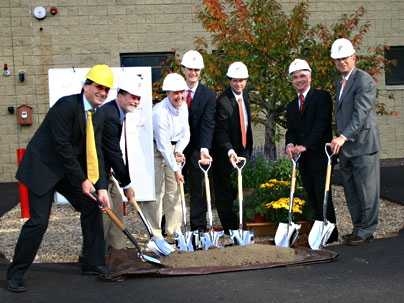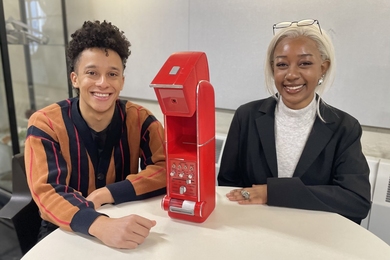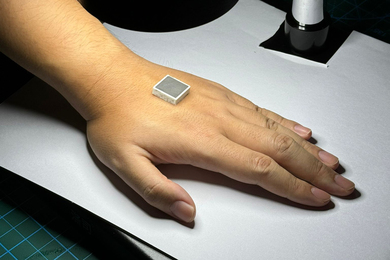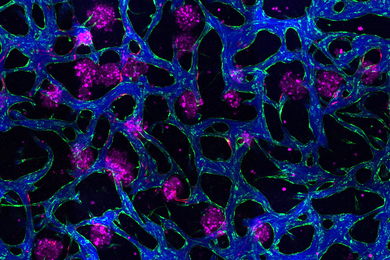A new computer cluster housed at the Bates Linear Accelerator Center will allow MIT researchers to process the vast amount of data that will be generated once the Large Hadron Collider starts operating again next spring.
A ceremony will be held Oct. 14 to mark the beginning of construction of the high-performance research computing facility, located in Middleton, Mass. The project will require the renovation of a 2,250-square-foot room at Bates, which is run by MIT's Laboratory for Nuclear Science.
The center will house 2,000 to 3,000 computers, about half of which will crunch LHC data. The other half will be used by researchers from the Laser Interferometer Gravitational-Wave Observatory, the Department of Earth, Atmospheric and Planetary Sciences, Lincoln Lab, Materials by Design and other MIT groups.
Housing the computers off-campus will help free up valuable space at MIT and save on electricity costs, said Bolek Wyslouch, professor of physics and leader of MIT's LHC research group.
The computing cluster is one of seven regional centers in the United States that will process LHC data. Researchers from Northeastern University, Boston University, Brown University and Fairfield University will also use the center, which will be accessible remotely.
"Data from LHC will be in Middleton, Mass., and at MIT half an hour or less from when it is collected in Switzerland," said Wyslouch.
The Large Hadron Collider is expected to produce more than 15 million gigabytes of data every year, which will be analyzed by more than 140 computer centers in 33 countries. Physicists will sift through the data in search of information that could lead to significant advances in particle physics, including the possible discovery of the Higgs boson.






